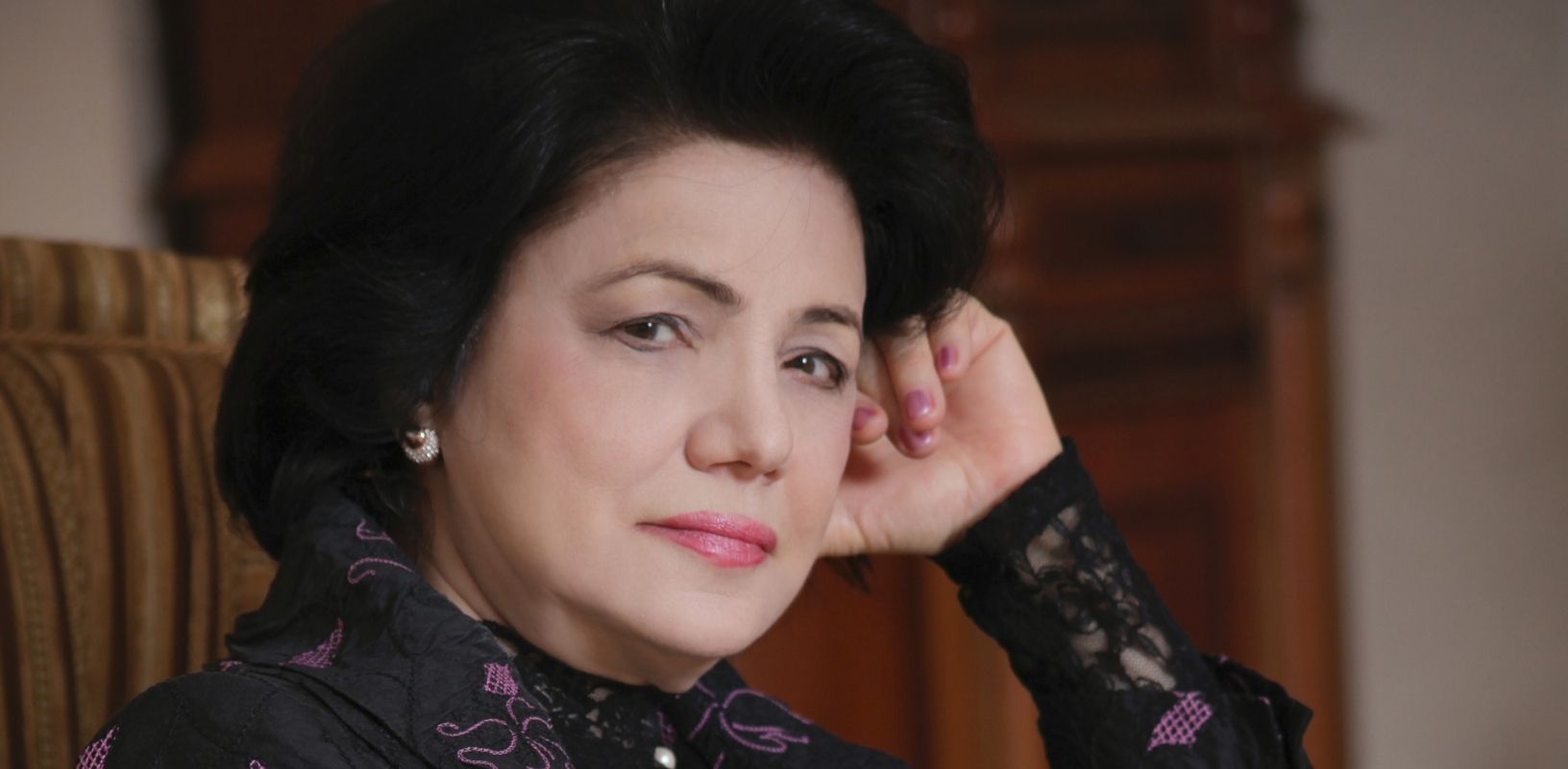Franghiz Ali-Zadeh: Her Life and Music

Learn about Franghiz Ali-Zadeh’s highly individual music, reflecting the colourful cultural contrast between East and Western music traditions. Part of a profile series throughout March—Women’s History Month—in which we explore the lives, music, and inspirations of extraordinary composers from around the world. View more women composer profiles here.
The greatest influences on the development of a composer's musical language are the first childhood memories: the family, the environment, the musical life of the homeland.—Franghis Ali-Zadeh
Her story
Franghiz Ali-Zadeh, who celebrates her 75th birthday this year, was born in Baku, Azerbaijan in 1947. She studied at the Baku Conservatoire, from which she graduated as a pianist in 1970, and as a composer in 1972. In 1976 she began to teach musicology at the conservatoire, where she has been Professor of Contemporary Music and the History of Orchestral Styles since 1990.
From 1993 to 1996 she conducted the choir of the opera house in Mersin, Turkey, and subsequently taught piano and music theory at the conservatoire in the city. In 1998/99 she worked again in Baku and since then has lived primarily in Germany.
As a pianist Ali-Zadeh has performed numerous works by contemporary composers from the former Soviet Union, and has given the Azerbaijani premieres of music by the Second Viennese School, and of works by composers such as Olivier Messiaen, John Cage, and George Crumb.
Her Voice
Ali-Zadeh’s music is rich in contrasts: Lightness is mirrored by vehemence, tender transparency with powerful colours, and calm simplicity with turbulent virtuosity. Her musical style also reflects the collision and blending of national tradition and West European modernism.
A central cycle of works in her output is summarised under the comprehensive term Silk Road. There are two forces at work here, and her style is dominated by an individual synthesis of these two worlds.
Ali-Zadeh is moved to write music inspired by current and past events. The Nasimi Passion, is a fine example of this and one of Ali-Zadeh’s signature large-scale works. It was given its world premiere in Amsterdam in 2017. The composer commented: “Facts, thoughts and deep feelings [about events in my home Azerbaijan] have found their way into the music of my Passion.”
Other recent works include Duo of Accordance for clarinet and cello, Raegs (Dance) for string quartet, Schwindende Schönheit(Disappearing Beauty) for viola d’amore, baroque cello, percussion and harp, Leb wohl, vergiss! (Farewell, Forget!) for baritone and piano, and two new orchestral scores Summer Impression and Cosmology.
Her Collaborations
In 1976 Franghiz Ali-Zadeh first introduced one of her pieces, the Piano Sonata In Memoriam Alban Berg, to European audiences at the Pesaro Music Festival. Thereafter her music was played at the Swedish Spring festival in Stockholm, the Warsaw Autumn festival, the Berlin Festival Weeks, the Almeida Festival in London, the International Festival for New Music in Heidelberg, the Holland Festival in Amsterdam, and in many other prestigious venues and events.
Since then performers such as Mstislav Rostropovich, Kirill Karabits, Martyn Brabbins, Yo-Yo Ma, Evelyn Glennie, Ivan Monighetti, David Geringas, Wu Man, Vladimir Tonkha, Elsbeth Moser and the Kronos Quartet have championed her music in performances, composer portrait concerts, broadcasts and CD recordings around the world.
Looking Ahead
Franghiz Ali-Zadeh's 75th birthday year sees the world premiere of Summer Impression by the Mitteldeutsche Kammerphilharmonie under Jan Michael Horstmann in Magdeburg on 27 March, and NIZAMI Cosmology by the Bournemouth Symphony Orchestra and Kirill Karabits on 6 April.
Photo: Archive Ali-Zadeh
